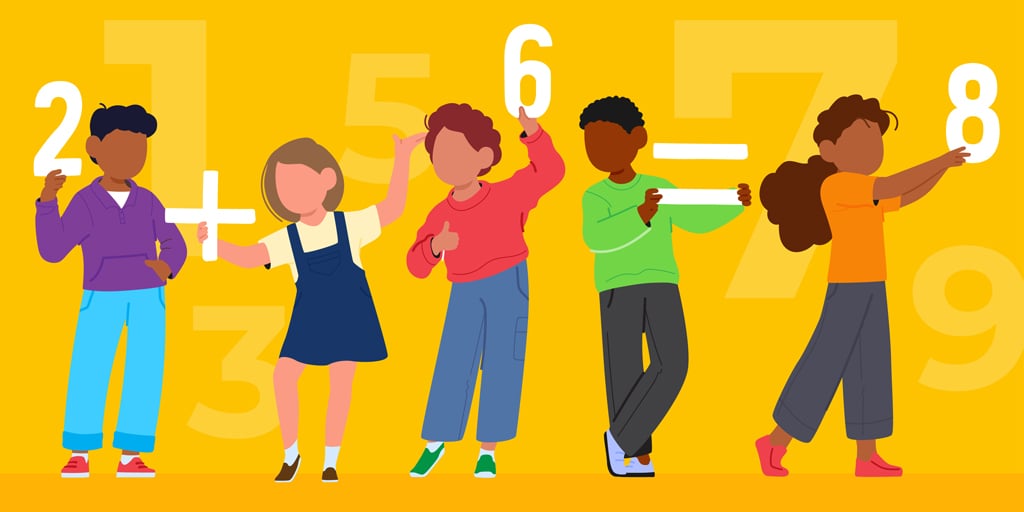Share this
Why Math Intervention is More Critical Than Ever for U.S. Schools
by Connie Warren, M.Ed. on Dec 9, 2024 7:30:00 AM

Has math progress really been set back 30 years?
Unfortunately, the answer is yes.
As education leaders work to close learning gaps exacerbated by the pandemic, math intervention has become a pressing priority. Recent data highlights alarming declines in student achievement, widening inequities, and the urgent need for robust, scalable solutions to meet diverse needs.
Math Performance Plummets to 1995 Levels
Pandemic-related learning loss has erased decades of progress in math achievement. According to the Trends in International Mathematics and Science Study (TIMSS), U.S. fourth and eighth graders scored significantly lower in 2023 than in 2019, with performance levels reverting to those last seen in 1995. Economist Thomas Dee of Stanford University described the findings as “incredibly sobering,” highlighting the steep challenge of regaining lost ground.
Math Interventions That Move the Needle
Download this comprehensive guide!
The National Assessment of Educational Progress (NAEP) echoes these findings, reporting a 7-point decline in average math scores for 9-year-olds between 2020 and 2022, marking the first-ever recorded drop in math achievement in NAEP history. This data underscores the importance of immediate, targeted math intervention to prevent further losses and rebuild foundational skills.
Gender Gaps in STEM Re-Emerge
Another concerning trend is the re-emergence of gender gaps in STEM. According to a 2023 analysis by the Network of Experts on Social Aspects of Education and Training (NESET), societal stereotypes and a lack of female role models continue to hinder girls’ participation in STEM fields. As TIMSS data reveals, boys are now outperforming girls in math and science at rates not seen in over a decade. This highlights the need for district leaders to implement gender-inclusive strategies, such as targeted math programs for girls, to foster equity in STEM education.
Inequities in Advanced Math Access
Access to advanced math courses remains a significant barrier for students in high-poverty schools. A Hechinger Report analysis found that nearly 25% of high-poverty schools did not offer algebra to eighth graders, compared to just 6% of the wealthiest schools. Moreover, nearly half of wealthier schools offered algebra to all eighth graders regardless of ability. This disparity in access prevents many students in underserved communities from developing the skills necessary for success in high school and beyond.
How States Are Supporting High-Impact Tutoring for Math Intervention
As federal ESSER funding phases out, many states are stepping in to help schools sustain learning recovery efforts through dedicated funding for high-impact tutoring. States like Louisiana, Texas, and Tennessee are leading the way, offering grants and programs specifically designed to help districts implement proven tutoring solutions.
Many state departments of education are also creating curated lists of vetted, research-based providers to simplify the selection process for district leaders. These lists often highlight programs like BookNook that demonstrate strong evidence of effectiveness and scalability, giving districts confidence in their choices.
District leaders can capitalize on these initiatives to bring in expert tutoring services that align with state standards and focus on accelerating student achievement in math.
Building Trust Through Data
Parents are increasingly skeptical of traditional metrics like grades as reliable indicators of student progress. A national survey cited by The Wall Street Journal found that grade inflation has led many parents to rely more on direct communication with teachers. This shift emphasizes the importance of transparent, data-driven approaches in math interventions. High-impact tutoring programs, such as those that provide regular progress reports, can help bridge this trust gap while keeping parents informed and engaged.
A Path Forward to Math Recovery
District leaders have a critical role to play in reversing these trends. Key strategies include:
- Implementing High-Impact Tutoring: Research-backed programs tailored to address foundational learning gaps in math skills.
- Fostering Equity in Access: Ensuring that all students, regardless of zip code, have opportunities to take advanced math courses.
- Leveraging State Support: Taking full advantage of state initiatives and grant programs to sustain tutoring services.
- Prioritizing Transparency: Adopting solutions that allow for clear, measurable outcomes to build trust with families and communities.
The path forward may be challenging, but every step we take today shapes the opportunities students will have tomorrow. Together, we can help students not only recover from setbacks but also thrive in their educational journeys and beyond.
Learn More:
Best Practices in Math: Nurturing Learners Through Interventions
Topics:
Educational Opportunity
Share this
- January 2026 (3)
- October 2025 (2)
- September 2025 (1)
- August 2025 (1)
- July 2025 (1)
- June 2025 (1)
- April 2025 (2)
- March 2025 (3)
- January 2025 (3)
- December 2024 (1)
- November 2024 (1)
- October 2024 (4)
- September 2024 (2)
- August 2024 (3)
- July 2024 (2)
- June 2024 (4)
- May 2024 (3)
- April 2024 (4)
- March 2024 (4)
- February 2024 (3)
- January 2024 (5)
- December 2023 (3)
- November 2023 (5)
- October 2023 (5)
- September 2023 (5)
- August 2023 (4)
- July 2023 (5)
- June 2023 (8)
- May 2023 (2)
- April 2023 (3)
- March 2023 (4)
- February 2023 (1)
- January 2023 (1)
- November 2022 (1)
- October 2022 (1)
- September 2022 (1)
- August 2022 (1)
- June 2022 (1)
- April 2021 (1)
- March 2021 (1)
- October 2020 (1)
- December 2019 (1)
- November 2019 (1)
- October 2019 (1)
- July 2019 (1)
- January 2019 (1)
- December 2018 (1)
- October 2018 (1)
- August 2018 (1)
- May 2018 (2)
- April 2018 (1)
- March 2018 (2)
- February 2018 (2)